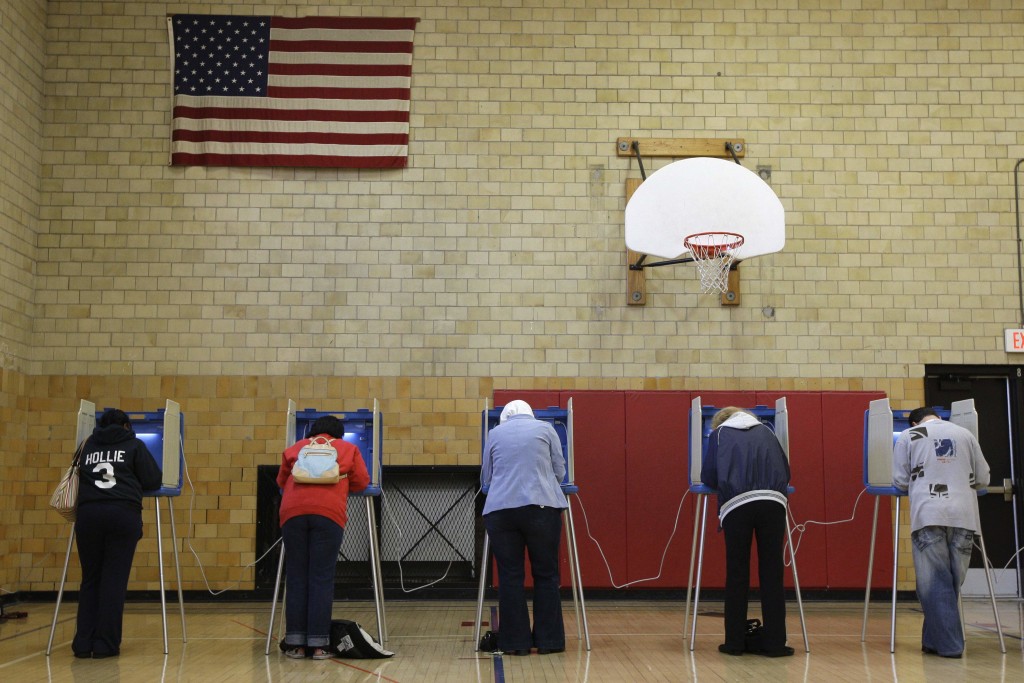Introducing “Ballot Watch”

October 1, 2014
Share
Click image to launch Ballot Watch
As the November midterm elections approach, the race for control of the Senate has tightened dramatically. Margins in some key states are so thin that the outcome could be determined by a small number of votes.
Who casts those votes is at the heart of a renewed debate over access to the ballot, sparked by lawmakers in the 28 states that have passed new voting laws in the past five years.
To understand the impact of these changes, FRONTLINE is launching Ballot Watch, an interactive database of voting laws nationwide. It’s the beginning of what will be our ongoing effort to provide the most up-to-date picture of where it is getting harder and easier to vote in America.
Among our findings:
- Since 2010, 19 states have passed laws that impose restrictions on who can vote. These laws include new voter ID requirements (passed by 14 states, reductions in early voting hours (6 states) and additional prohibitions on voting for felons (4 states).
- Of those states, 9 have a documented history of discriminating against minority voters.
- 6 states have passed laws that expand access for voters, either allowing them to vote in person before Election Day or offering greater leeway for those who vote by mail. Delaware has restored some voting rights for felons.
- 2 states — Idaho and Rhode Island — have passed both restrictive and expansive laws.
These shifts in the election landscape come against an historic backdrop of racial discrimination in voting — in particular against African Americans, but also Latinos, Asian Americans and Native Americans. In 1965, the U.S. passed the landmark Voting Rights Act, which prohibited such discrimination, and the federal government began to single out states with a pattern of denying the vote to minorities. Fifteen states were ultimately required to submit proposed changes to their voting laws to the federal government for approval ahead of time — an action known as “preclearance” — before they could take effect.
In June 2013, the U.S. Supreme Court overturned that provision in Shelby v. Holder, saying the preclearance requirement was outdated because it judged states on their past actions, not their present behavior.
In the wake of the Shelby decision, 6 states — Mississippi, Alabama, Virginia, Texas, North Carolina and Florida — that had been covered under the preclearance requirement implemented new restrictive laws, including stricter voter ID requirements or, in the case of Florida, cutting back on the number of hours during which voters could go to the polls ahead of Election Day.
Also, 3 swing states that were not covered under the preclearance rules have passed restrictive laws that have been challenged in court.
- Pennsylvania’s new voter ID law was blocked by the state Supreme Court earlier this year.
- Earlier this month, a federal court allowed a Wisconsin law that introduced new voter ID requirements to proceed in time for the November midterm election.
- On Sept. 29, the U.S. Supreme Court allowed a new Ohio law that imposes cuts to early voting to proceed for the November midterm election.
We’ll continue to monitor bills and lawsuits as they progress to track nationwide trends and help voters understand what it means at the polls. Check out Ballot Watch here.

Latest Documentaries
Explore
Policies
Teacher Center
Funding for FRONTLINE is provided through the support of PBS viewers and by the Corporation for Public Broadcasting, with major support from Ford Foundation. Additional funding is provided the Abrams Foundation, Park Foundation, John D. and Catherine T. MacArthur Foundation, Heising-Simons Foundation, and the FRONTLINE Trust, with major support from Jon and Jo Ann Hagler on behalf of the Jon L. Hagler Foundation, and additional support from Koo and Patricia Yuen. FRONTLINE is a registered trademark of WGBH Educational Foundation. Web Site Copyright ©1995-2025 WGBH Educational Foundation. PBS is a 501(c)(3) not-for-profit organization.




















